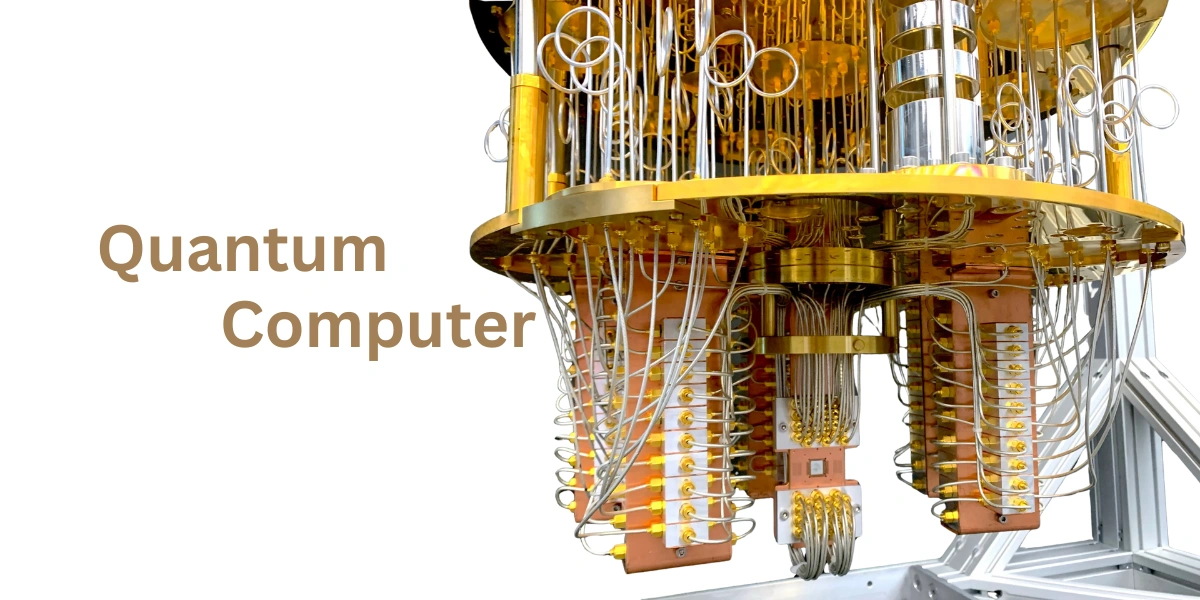In the rapidly evolving landscape of computer science, quantum computing stands out as a revolutionary paradigm that promises to solve complex problems far beyond the reach of classical computers. At the heart of this quantum revolution lie quantum algorithms – the ingenious mathematical recipes that harness the unique properties of quantum systems to perform computations with unprecedented efficiency. This article delves into the fascinating world of quantum algorithms, exploring their principles, applications, and the transformative potential they hold for various fields.

Understanding Quantum Computing: A Brief Overview
Before we dive into quantum algorithms, it’s crucial to grasp the fundamental concepts of quantum computing. Unlike classical computers that use bits (0s and 1s) to process information, quantum computers leverage quantum bits, or qubits. Qubits can exist in multiple states simultaneously, a phenomenon known as superposition. Additionally, qubits can be entangled, allowing them to share information instantaneously across distances.
These quantum mechanical properties enable quantum computers to perform certain calculations exponentially faster than their classical counterparts. However, harnessing this power requires specially designed algorithms that can exploit the quantum nature of these systems.
The Birth of Quantum Algorithms
The field of quantum algorithms was born in the 1990s when mathematicians and physicists began to explore how quantum mechanics could be applied to computation. The breakthrough came in 1994 when Peter Shor developed an algorithm that could efficiently factor large numbers – a task that is computationally intensive for classical computers and forms the basis of many encryption systems.
Shor’s algorithm demonstrated the potential of quantum computing to solve problems that were considered intractable for classical computers, sparking a surge of interest in the field. Since then, researchers have developed a diverse array of quantum algorithms, each designed to tackle specific classes of problems.
Key Quantum Algorithms and Their Applications
Let’s explore some of the most significant quantum algorithms and their potential applications:
1. Shor’s Algorithm
Purpose: Integer factorization and discrete logarithm problems Potential Impact: Cryptography, cybersecurity
Shor’s algorithm can factor large numbers exponentially faster than the best-known classical algorithms. This capability poses a significant threat to widely used public-key cryptography systems like RSA, which rely on the difficulty of factoring large numbers. While the algorithm requires a large-scale quantum computer to be practically useful, its existence has already spurred the development of quantum-resistant cryptographic methods.
2. Grover’s Algorithm
Purpose: Unstructured search problems Potential Impact: Database search, optimization problems
Developed by Lov Grover in 1996, this algorithm provides a quadratic speedup for searching unsorted databases. While not as dramatic as the exponential speedup of Shor’s algorithm, Grover’s algorithm has a wider range of applications, from accelerating database searches to optimizing complex systems in fields like logistics and finance.
3. Quantum Approximate Optimization Algorithm (QAOA)
Purpose: Combinatorial optimization problems Potential Impact: Logistics, finance, machine learning
QAOA is a hybrid quantum-classical algorithm designed to find approximate solutions to hard optimization problems. It’s particularly promising for near-term quantum computers and has potential applications in areas like portfolio optimization, traffic flow management, and machine learning model training.
4. HHL Algorithm (Harrow-Hassidim-Lloyd)
Purpose: Solving systems of linear equations Potential Impact: Machine learning, computational fluid dynamics, economic modeling
The HHL algorithm can solve certain systems of linear equations exponentially faster than classical methods. This capability is particularly relevant for machine learning tasks, such as support vector machines and principal component analysis, as well as simulations in physics and engineering.
5. Quantum Fourier Transform (QFT)
Purpose: Fourier transforms Potential Impact: Signal processing, data analysis, quantum chemistry
The QFT is a quantum analog of the classical discrete Fourier transform. It’s a fundamental building block for many other quantum algorithms, including Shor’s algorithm. The QFT can be performed exponentially faster on a quantum computer, potentially revolutionizing fields that rely heavily on Fourier analysis, such as signal processing and quantum chemistry simulations.
Challenges and Limitations of Quantum Algorithms
While quantum algorithms offer tremendous potential, they also face several challenges:
- Quantum Error Correction: Quantum systems are highly sensitive to environmental noise, leading to errors in computations. Developing robust error correction techniques is crucial for the practical implementation of quantum algorithms.
- Quantum Decoherence: Quantum states can lose their coherence over time, limiting the duration and complexity of quantum computations. This challenge necessitates the development of algorithms that can complete their tasks within the coherence time of the quantum system.
- Limited Qubit Count: Current quantum computers have a limited number of qubits, restricting the size of problems that can be tackled. Many quantum algorithm require a large number of qubits to outperform classical alternatives.
- Algorithm Design Complexity: Designing quantum algorithm is a complex task that requires deep understanding of both quantum mechanics and computer science. Developing intuitive tools and frameworks for quantum algorithm design is an ongoing challenge.
- Classical Data Input/Output: Efficiently transferring classical data into and out of quantum systems remains a bottleneck for many quantum algorithms.
The Future of Quantum Algorithms
As quantum hardware continues to advance, we can expect rapid developments in the field of quantum algorithm. Some exciting areas of ongoing research include:
Quantum Machine Learning
Researchers are exploring ways to leverage quantum algorithm to enhance machine learning tasks. Quantum versions of classical machine learning algorithms, such as quantum support vector machines and quantum neural networks, show promise for accelerating training and improving model performance.
Quantum Simulation
Quantum algorithms for simulating quantum systems could revolutionize fields like materials science, drug discovery, and chemical engineering. These algorithms could enable the design of new materials with specific properties or the simulation of complex molecular interactions for drug development.
Quantum-Inspired Classical Algorithms
The insights gained from quantum algorithm research have led to improvements in classical algorithms. This “quantum inspiration” could lead to advancements in classical computing even before large-scale quantum computers become available.
Hybrid Quantum-Classical Algorithms
Recognizing the strengths of both quantum and classical computers, researchers are developing hybrid algorithms that leverage the best of both worlds. These algorithms could be particularly useful in the near term as quantum computers continue to scale up.
Conclusion
Quantum algorithms represent a paradigm shift in our approach to computation. By harnessing the unique properties of quantum systems, these algorithms offer the potential to solve problems that have long been considered intractable. From breaking encryption systems to optimizing complex logistics networks and simulating quantum systems, the applications of quantum algorithm span a wide range of fields.
However, the journey from theoretical quantum algorithm to practical, large-scale implementations is ongoing. Overcoming challenges in quantum error correction, scaling up qubit counts, and designing user-friendly quantum software tools are crucial steps in realizing the full potential of quantum computing.
As research in quantum algorithm progresses, we can anticipate a future where quantum and classical computing work in tandem, each leveraging its strengths to tackle the world’s most challenging computational problems. The quantum algorithm revolution is not just about faster computers; it’s about fundamentally changing our approach to problem-solving and pushing the boundaries of what’s computationally possible.
The field of quantum algorithm is still in its infancy, with new discoveries and breakthroughs occurring regularly. As we stand on the brink of this quantum revolution, one thing is certain: the algorithms we develop today will shape the technological landscape of tomorrow, opening up new frontiers in science, engineering, and beyond.
| Read More Topics |
| What programming language is leetcode? |
| Distance vector routing algorithm |
| Packet switching at network layer |





